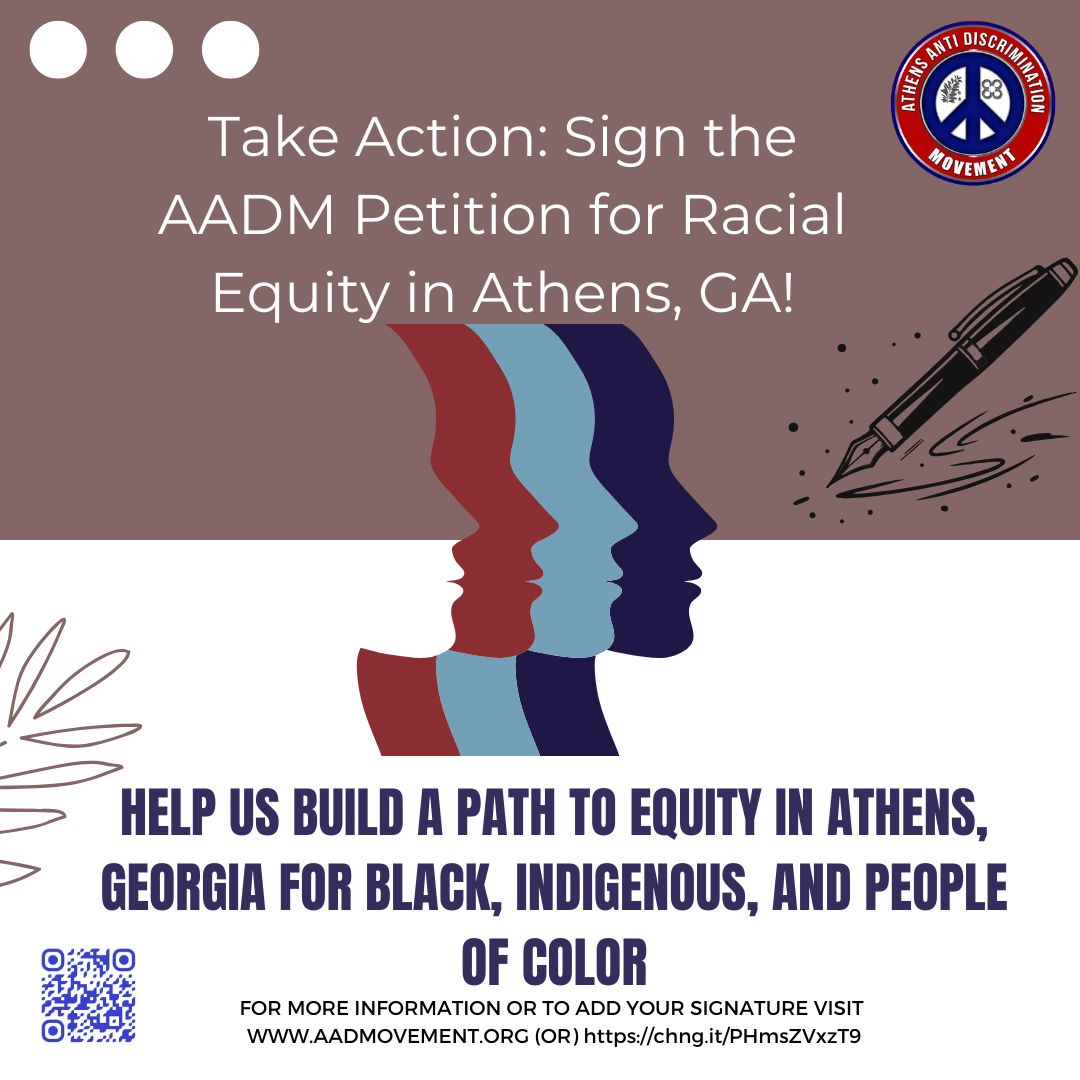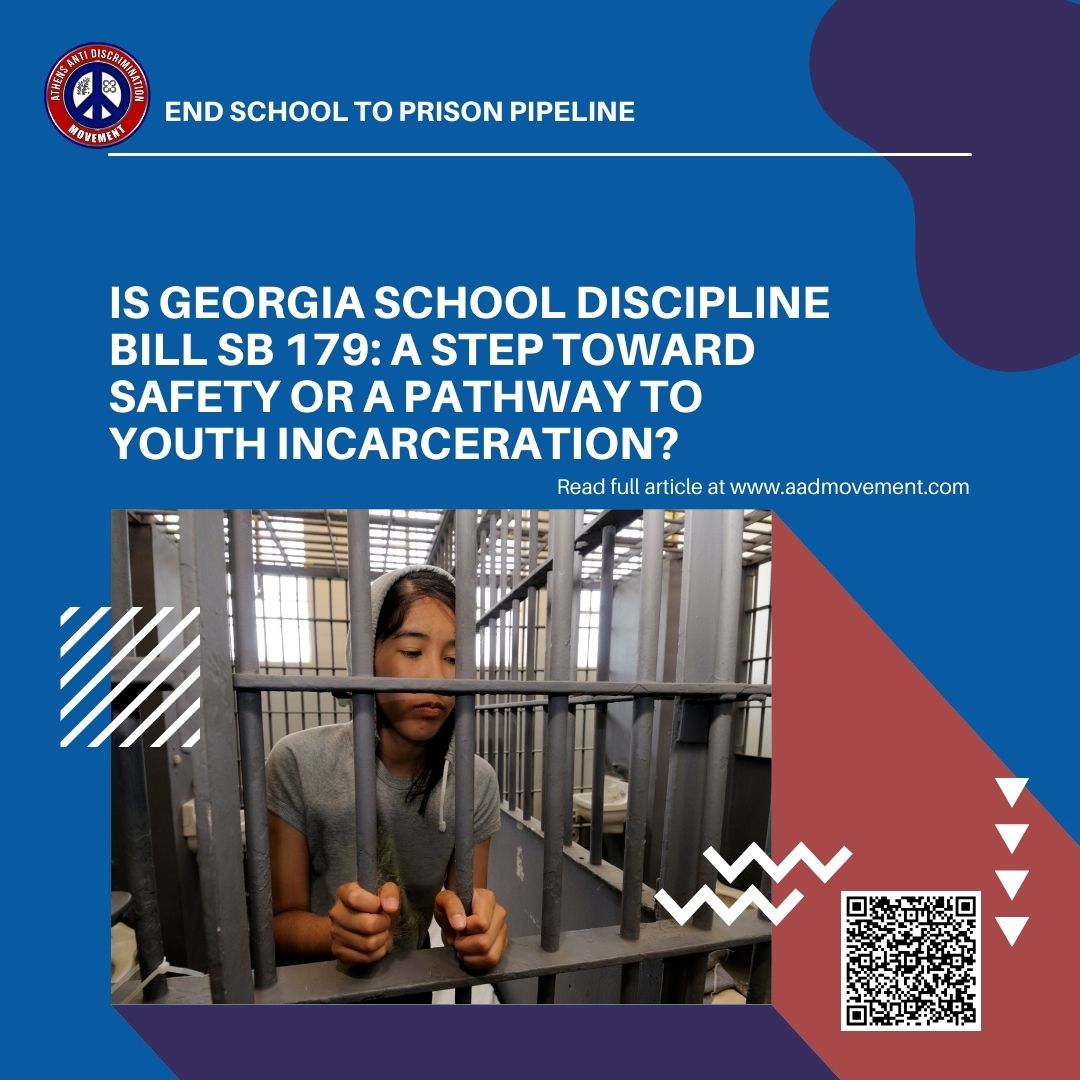Written by Mokah Jasmine Johnson
Athens-Clarke County, Georgia, stands at a critical crossroads, with decisions being made today that will shape its future for generations to come. With poverty levels hovering at an alarming 26%, far above the national average, and disproportionately affecting marginalized communities, the Athens Anti-Discrimination Movement (AADM) is calling for community support to address persistent inequities.
On December 4th, 2024, the AADM proposed a resolution to the Athens-Clarke County Unified Government (ACCUG) Mayor and Commission, urging action to bridge the gaps in equitable resource distribution for Black, Indigenous, and People of Color (BIPOC) communities. This resolution reaffirms a commitment to promoting housing security, economic empowerment, and youth safety. These are not just policy priorities—they are moral imperatives for a community that resolved in 2020 to affirm that Black Lives Matter and invested $6 million toward addressing systemic inequities.
Several individuals and organizations have expressed their support for this resolution, including Alvin Sheats, President of the NAACP Clarke County Unit 5180; Rev. Miki Chastain, Pastor of Oconee Street United Methodist Church; and Rev. Dr. Pippin Whitaker, Minister of the Unitarian Universalist Fellowship of Athens and Vice Chair of the Interfaith Clergy Partnership of Greater Athens.
Why This Resolution Matters
Athens-Clarke County’s stark economic and social disparities demand urgent action. Despite federal funding, such as the $57.6 million allocated through the American Rescue Plan Act, persistent barriers continue to limit the potential of BIPOC communities, minority-owned businesses, and disadvantaged youth. The findings from the 2023 disparity study by MGT Consulting Group confirm these challenges, highlighting systemic gaps in access to opportunities for minority and women-owned businesses.
Equitable policy implementation is essential for reversing these disparities and fostering sustainable growth for all residents. By committing to targeted investments and policy changes, ACCUG can ensure that its most vulnerable residents are not left behind.
The Resolution’s Core Initiatives
- Housing Security Housing instability remains a significant barrier for low-income residents in Athens. The resolution proposes:
- Developing and preserving affordable housing, particularly in neighborhoods facing the highest poverty rates.
- Increasing funding for rental assistance programs to prevent evictions and homelessness.
- Supporting minority-led nonprofits in creating transitional housing for the homeless.
- Preventing displacement caused by gentrification through equitable zoning policies.
- Economic Empowerment Supporting and creating pathways for Black and minority-owned businesses can reduce the community wealth gap, yet they face systemic challenges. To empower these businesses, the resolution recommends:
- Establishing revolving loan funds and microgrant programs tailored to minority entrepreneurs.
- Creating a Minority Business Accelerator Program to provide mentorship, training, and more.
- Youth Safety and Development The youth in Athens face disproportionate risks, including gang violence and limited educational and employment opportunities. The resolution aims to:
- Continue to invest in after-school programs, summer employment opportunities, and skill-building workshops.
- Fund inclusive recreational facilities and cultural spaces to foster community connections.
- Collaborate on restorative justice practices to provide equitable support for at-risk youth.
- Oversight and Collaboration To ensure accountability and transparency, the resolution proposes:
- Establishing an Oversight Committee composed of community stakeholders.
- Partnering with state and federal agencies, private sector stakeholders, and philanthropic organizations to secure additional resources.
- Utilizing data-driven approaches to evaluate and adjust initiatives for maximum impact.
A Call to Action
Change requires collective effort. AADM is calling on the Athens-Clarke County community to rally behind this resolution and hold local leaders accountable for implementing policies that protect civil and human rights. This is not just about addressing today’s inequities; it’s about creating a sustainable future where everyone has access to housing, economic opportunities, and a safe environment for their children to thrive.
The work ahead is complex, and the outcomes are not guaranteed. However, by prioritizing these initiatives, Athens-Clarke County can set a powerful example of what a community committed to equity and justice can achieve. It’s time to take a stand and ensure that progress is made for all.
Join the Movement
AADM invites residents, local organizations, and stakeholders to lend their voices and support. Together, we can advocate for policies that uphold the dignity and potential of all community members, especially those who have been historically marginalized. Let’s build a future where equity is not just an aspiration but a reality.
Visit change.org https://chng.it/sm5wZJL9nV to review the full resolution and show your support by signing this petition “Building a Path to Equity in Athens for BIPOC Communities.
Download PDF Copy.




